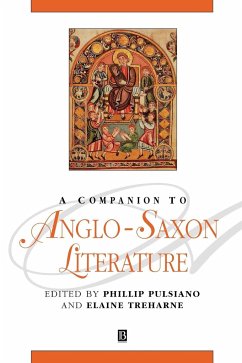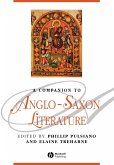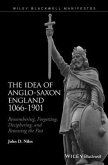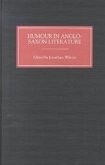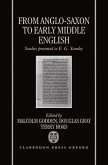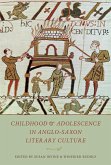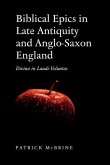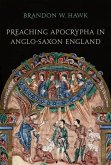This stimulating Companion brings together leading scholars from America, the Antipodes, and Europe to point the way ahead for Anglo-Saxon studies. The scope of the volume is unparalleled, embracing not only the literature of the period, but also the cultural background and the discipline of Anglo-Saxon studies, past, present and future. The chapters are linked into five sections covering contexts, readings, genres, intertextualities and debates. The combination of the discussion of primary material and manuscript sources with critical analysis and readings breaks new ground: fresh approaches are offered, genres of writing not normally studied are opened up, and readers are shown how texts can be read in their particular cultural milieu. The complete volume is essential reading for upper-level students or faculty who want a current and challenging overview of the field.
Hinweis: Dieser Artikel kann nur an eine deutsche Lieferadresse ausgeliefert werden.
Hinweis: Dieser Artikel kann nur an eine deutsche Lieferadresse ausgeliefert werden.
"The latest addition to Blackwell's comprehensive surveys ofliterature and culture, this volume offers an impressive array ofessays by reputable scholars ... This Companion will be avaluable introduction for upper-level undergraduate and graduatestudents and useful resource for faculty."
Choice
"A Companion to Anglo-Saxon Literature is an impressiveanthology of erudite essays written by scholars around the world onthe topic of Anglo-Saxon literature, particularly that of thesixteenth through nineteenth centuries. Prose, poetry, religious,and secular literature are all discussed at length in thiscollege-level analysis and presentation, which is very highlyrecommended for academic literary studies in general, and medievalstudies in reference collections in particular."
The Midwest Book Review
"Many of the world's leading Anglo-Saxonists have contributed tothis volume which provides a very useful overview of currentpreoccupations of those who study and teach Old Englishliterature."
Literature and History
"Stimulating introductions that bring out the wider potential oftheir topics for understanding the Anglo-Saxon past ... much tooffer the more experienced reader as well as the novice."
Literature and History
Choice
"A Companion to Anglo-Saxon Literature is an impressiveanthology of erudite essays written by scholars around the world onthe topic of Anglo-Saxon literature, particularly that of thesixteenth through nineteenth centuries. Prose, poetry, religious,and secular literature are all discussed at length in thiscollege-level analysis and presentation, which is very highlyrecommended for academic literary studies in general, and medievalstudies in reference collections in particular."
The Midwest Book Review
"Many of the world's leading Anglo-Saxonists have contributed tothis volume which provides a very useful overview of currentpreoccupations of those who study and teach Old Englishliterature."
Literature and History
"Stimulating introductions that bring out the wider potential oftheir topics for understanding the Anglo-Saxon past ... much tooffer the more experienced reader as well as the novice."
Literature and History

